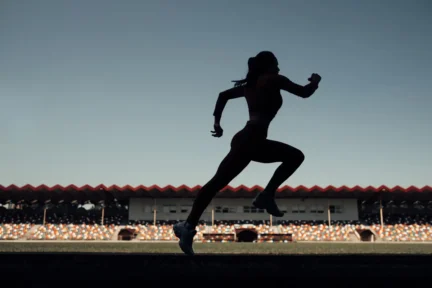When it comes to the NCAA’s Name, Image and Likeness (NIL) era, international student-athletes have faced some of the biggest limitations since NIL became legal in 2021 Ivy League 2025 Basketball Preview. Unlike their U.S. teammates, most international student-athletes come to America on F-1 student visas, which carry very strict rules on employment.
And, yes — NIL activities such as brand sponsorships, photoshoots, autograph sessions, social media content creation, and similar paid engagements are considered active employment.
Because of that, international student-athletes cannot perform those activities on U.S. soil.
But they can participate in NIL when they are outside the United States, including in their home countries or while abroad on team trips.
Challenges for International Athletes
Former Kentucky basketball star Oscar Tshiebwe became the first major example of this approach in 2022 Ivy Wbb 2025 Preview. With the help of his athletics department, Tshiebwe completed NIL obligations during a team trip to the Bahamas. Kentucky officials contacted his NIL partners ahead of time, letting them know that Tshiebwe would be available while outside the U.S. Then-Kentucky coach John Calipari supported Tshiebwe as he balanced practices with NIL opportunities such as signing merchandise, filming ad reads, and posing for photo shoots.
Before he even unpacked after reaching the Bahamas, Tshiebwe had completed promotional work for four companies. The next day, he remained two hours after practice for a photo shoot with a local pizza brand.
During that trip, Tshiebwe earned around $500,000, money that helped him move his mother and siblings out of poverty in the Democratic Republic of Congo.
He also used his platform that year to speak with lawmakers about the challenges international student-athletes face under current immigration rules.
Since then, with the help of schools and agents, some international student-athletes have found creative ways to work within the regulations. Many organize camps in their home countries, complete endorsement shoots while abroad, or fulfill NIL agreements during academic breaks — all outside the United States, where the visa restrictions do not apply. Heisman Trophy Favorites
Regulatory Pathways and Limitations
International student-athletes can, of course, receive scholarships, which are considered financial aid rather than employment. But they still cannot earn NIL income inside the United States. International Athletes NIL Money
This matters to a large group: according to the NCAA, roughly one out of every eight Division I athletes — about 24,000 students — come from foreign countries.
To study and compete in the U.S., these athletes must qualify for an F-1 visa through the Department of State. To keep that status, they must remain enrolled full-time and are allowed only four very limited categories of paid work:
- On-campus employment
- Employment due to severe economic hardship
- Curricular Practical Training (CPT)
- Optional Practical Training (OPT)
These categories do not cover NIL activities.
There is a narrow pathway: an international student-athlete can sign an NIL deal in their home country, produce NIL content while abroad, and be compensated outside the U.S. Although possible, this is not always realistic during the academic year. International Athletes NIL Changes
Even then, there is some risk. Legal experts describe this area as murky, noting that the Department of Homeland Security ultimately determines how these arrangements are interpreted. Documentation must be precise, and even properly executed deals can still raise questions.
Because of that uncertainty, schools, compliance departments, and agents have taken on a larger role in helping international athletes navigate NIL. Organizing camps abroad, completing endorsements during international trips, and timing deliverables outside the academic calendar have become the most common paths.
For now, the opportunities exist — but almost entirely outside the United States and only with careful planning and documentation Lane Kiffin Next.
Visa Constraints Limit NIL Earning for International Students
While NCAA rules technically permit NIL participation, U.S. immigration laws — particularly F-1 visa restrictions — prevent most international students from earning money while in the U.S. For a full breakdown of these legal challenges, including workarounds and pending reform efforts, read our detailed feature here.
Learn More About the NIL Landscape
Name, Image, and Likeness plays an increasing role in college sports, and understanding how it works often requires more than individual articles or news updates.
RallyFuel is a platform focused on NIL-related topics across college athletics. It brings together information about athletes, NIL activity, and the broader structure behind modern college sports, helping readers explore the topic in more depth.





Leave a Comment